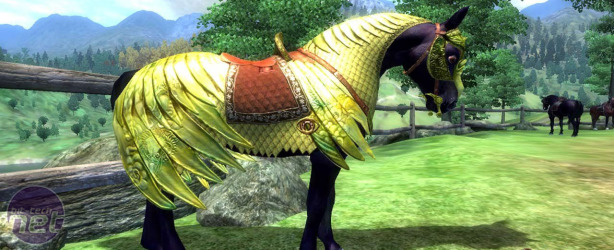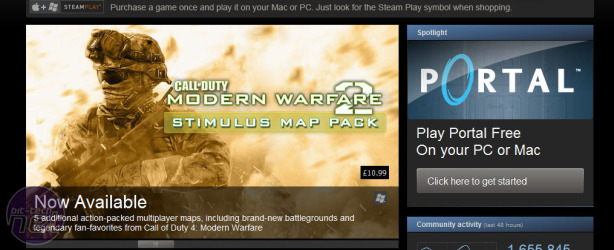How Much Should DLC Cost?
Nothing gets gamers more animated and vocal than DRM, but second to that comes the topic of game pricing and downloadable content. A lot of angry words are exchanged about what constitutes fair pricing for games, but isn't it time for gamers to take a deep breath and look at the whole topic with an open mind?In the minds of many DLC will always be equated to Oblivion’s Horse Armour, which was so frowned upon it’s become shorthand for when publishers price-gouge gamers by providing limited content for inflated prices, but we've come a long way since the scandal over shiny equestrian accessories.
The future of gaming isn't just DLC, but a wide variety of game pricing options, including free-to-play, micro-transactions, self-contained games, MMOs and paid DLC. While to some this may spell the worst excesses of capitalism, I suggest that this just spells choice and freedom, allowing gamers unprecedented control over how much they pay and exactly what they pay for. New game pricing models are nothing to be afraid of and are good news for gamers and game developers alike.
In every other area of life, we are quite happy to accept that products have different prices, often broken up in quite complex ways, because as consumers, we are free to make decisions, hopefully informed ones, as to what to buy and how much to pay. Restaurants have fixed menus, 'a-la-carte', 'all you can eat' and 'meal deals', as well as tips. Mobile phones have a variety of payment systems, and buying a PC online gives you more price options than the average human brain can compute. We seem perfectly happy with all this variety.
So my question is; why don’t gamers like it when the same concepts are applied to games?
As a game developer myself, I'm used to constant emails, forum posts and Facebook messages from customers asking if its possible to add feature X or Y to the game. With the old-style system of a single game released with a fixed price, these requests were practically useless unless they were uniform and the game was successful, in which case they’d get dumped into a sequel. With DLC though, that’s no longer the case. I’m currently working on a campaign mode for my latest game, Gratuitous Space Battles. This is a feature I've always liked the idea of, but it didn't make it into the original game because the game was already too big in scope for the development time I could afford. If the game had flopped, an extra four months working on a campaign would have been a financial disaster for me.
But with the option to sell the campaign mode as a paid add-on, I can make the numbers add up and justify working on it. This is an absolute win-win situation. As a developer, I know that there are a certain proportion of people out there that will pay for this content and I can tailor the scale and scope of the content accordingly. As a gamer, they get exactly the extra features they want and if they don’t want it, they don't pay for it.
My assertion is that this is great news for gaming. We should love it, support it, embrace it, even if we personally never choose to buy it. I own a ton of RTS games with campaign modes I've never played, but the old pricing model has meant I've been paying for them in full and the designers got zero feedback from me. They didn’t know that I was only interested in Skirmish mode and I was never able to buy just the bits I wanted, so I was constantly paying more than I felt I should.
Whenever we are given choices, as long as they don't overwhelm us, we tend to be happier and better off. So, why is it that the mere suggestion of such choices causes such frustration and venting by a vocal section of PC gamers?
One obvious reason that gamers don’t like it is that we haven't perfected any of it yet. Most developers have no idea how to price their DLC, not just in terms of the practical price, but also because they haven’t worked out what the motive is.

MSI MPG Velox 100R Chassis Review
October 14 2021 | 15:04












Want to comment? Please log in.